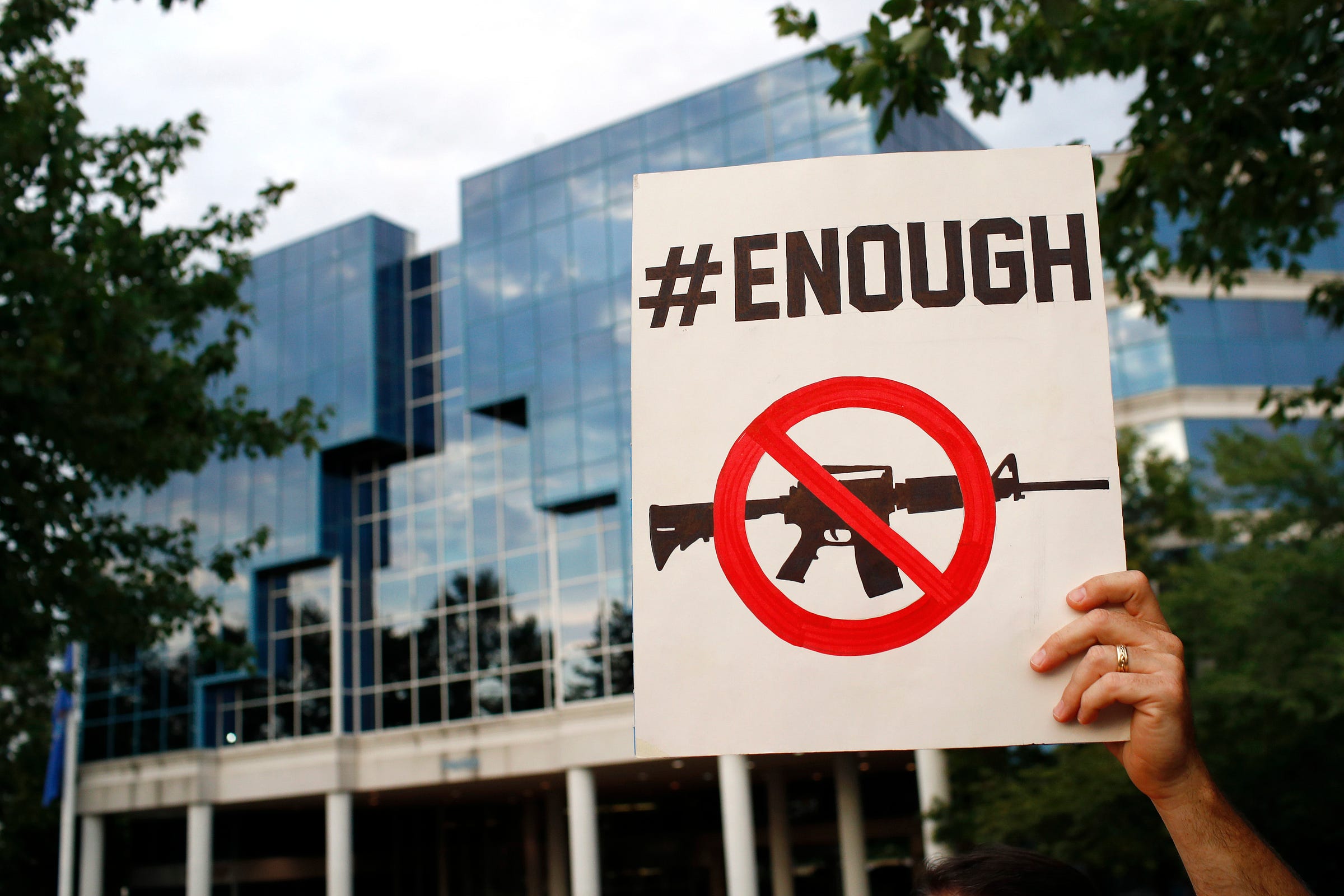Unsettling Advent 2022, Day 20
“Then he will say to those on his left, ‘Depart from me, you who are cursed, into the eternal fire prepared for the devil and his angels. For I was hungry and you gave me nothing to eat, I was thirsty and you gave me nothing to drink, I was a stranger and you did not invite me in, I needed clothes and you did not clothe me, I was sick and in prison and you did not look after me.’ They also will answer, ‘Lord, when did we see you hungry or thirsty or a stranger or needing clothes or sick or in prison, and did not help you?’ He will reply, ‘Truly I tell you, whatever you did not do for one of the least of these, you did not do for me.’ Then they will go away to eternal punishment, but the righteous to eternal life. (Matthew 25:41-46)
I keep writing about the AR-15 in this country, the violence it wreaks, the violence it represents, and the myriad ways it can be used to signal violence even before it commits it. And in the wake of every shooting, we get the refrain of thoughts and prayers, thoughts and prayers, sprinkled with condemnation for the dead or the occasional appeal to stop mass shootings by putting the Bible back in schools.
The AR-15 has been claimed as the sword Christ will wield in the Apocalypse. It has been claimed as the Rod of Iron of Psalms and Revelation. It has been proclaimed the weapon of a good Christian. It has been proclaimed the weapon that would keep Christ from being killed. It has been made into a weapon of the Apocalypse.
It is not a tool for revelation, but it is certainly a tool of Armageddon. It is a gun that ends worlds.

It ended the world not only for the five people killed in Club Q in Colorado Springs, not only for the 19 people injured, but for their community, their friends and family and loved ones, and for the nation, when the LGBTQIA+ community — already facing waves of hate and vitriol, persecution and legislation targeted against them — have to face the threat of mass shootings in the places they should be safe.
It ended the world for 19 students and two teachers in Uvalde, Texas, children between the ages of my two oldest, for their families, for the students injured and the students who fled, and a town that will never be the same. It ended the world for 20 children and six staff members and a community and families who will never have that wound healed in Newtown, Connecticut, children the age of my third-born son. It ended the world for the 17 people killed in Parkview, Florida. It ended the world for them, but it ends a world for their families and their friends and their acquaintances who can never get that world back again.
It ended a world in Buffalo, New York, with the murder of 10 African American shoppers and workers in a grocery store when a White Supremacist with an AR-15 went in to commit his hate crime. It ended a world in a church in Sutherland Springs, Texas, for the 26 killed and everyone they left behind. It ended a world in Pittsburgh, Pennsylvania, when an antisemite walked into the Tree of Life synagogue and killed 11 worshipers there.
And these are just with one type of weapon, a drop in the bucket of the mass shootings in this country. And the response is always “thoughts and prayers, thoughts and prayers,” never action, never legislation, never an attempt to do a good deed, to match prayer with action. And all the while the marginalized communities, those with the least power among us, minorities and children and civilians trying to shop or watch a movie or go to school or dance or simply live, die.
What was done to the least, you have done to me — those are the words. And what has been done is nothing. Nothing to stop the epidemic of gun violence. Nothing to deal with the root causes of hate, and certainly nothing to deal with the instruments of destruction. Because that gun, America’s own personal Moloch that we worship more than God or neighbor or life or hope or decency, that gun must be allowed, no matter the cost. And the cost is so high, too high to be borne, and yet here we sit still, waiting for the next shooting.
Thomas Lecaque is an associate professor of history at Grand View University in Des Moines, Iowa, located on Baxoje, Meskwaki, and Sauk lands. He has written for the Washington Post, Foreign Policy, and The Bulwark. Follow him @tlecaque on Twitter.

